Meng Wanzhou, the chief financial officer of Huawei Technologies Co., may be able to return home to China from Canada soon. The daughter of Huawei founder Ren Zhengfei was arrested in December 2018 following an extradition warrant issued by the U.S. and has been charged with bank and wire fraud linked to alleged breaches of sanctions against Iran.
Also known as Sabrina, the Huawei CFO was accused of having violated a U.S. trade embargo against Iran via a Hong Kong-based company named Skycom Tech Co Ltd. She was alleged to have lied to a bank from 2009 to 2014 about Huawei’s relationship with Skycom, an unofficial Huawei subsidiary in Iran. Meng was accused of using Skycom to evade sanctions on Iran.
However, Meng said she is innocent of the charges and is fighting extradition to the United States – a process that could take years. Otherwise called Cathy Meng, the Huawei princess faces up to 30 years in prison in the U.S. if found guilty of the charges. Now, according to the Wall Street Journal, the U.S. Department of Justice is discussing a deal with Meng.
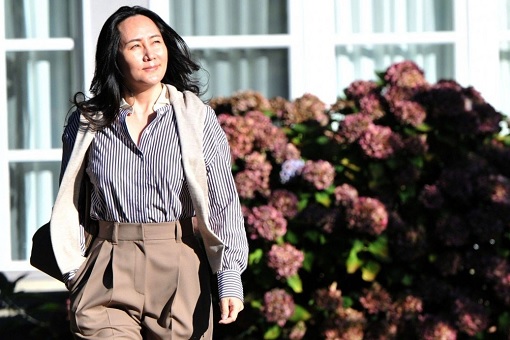
The dramatic proposed settlement between the U.S. and Sabrina Meng coincidentally came after the humiliating defeat of President Donald Trump. In exchange for dropping the criminal cases, hence allowing her to return home to China, the Huawei CFO is required to admit to some of the allegations against her. But Meng has so far rejected the deal, believing she did nothing wrong.
The U.S. Justice Department said there’s a possibility of deferring the prosecution and later drop the charges – if Ms. Meng cooperates. Obviously, the deal was to enable the U.S. to save face as there is no longer an incentive to proceed after Trump lost to Biden. The arrest of Meng is widely believed to be a political move by Trump, who sees Huawei as a national-security threat.
President-elect Joe Biden has said that he would like to negotiate with Iran to rejoin the nuclear deal that had been scrapped by Trump administration. Therefore, it makes little sense for the U.S. DOJ put resources on a case originally meant to align with Trump’s policy that has so far not only strained the relationship between the U.S. and China, but also Canada-China bilateral ties.
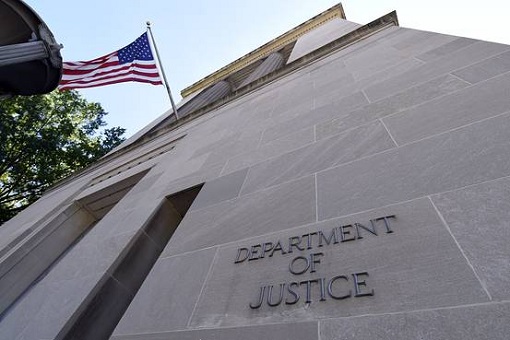
In May 2019, in what appeared to be a preparation for a long legal fight against her extradition to the U.S., Meng had moved from her C$5 million (US$3.7 million; £2.8 million; RM15.4 million) six-bedroom house to her newly renovated C$13 million (US$9.6 million; £7.4 million; RM40 million) seven-bedroom mansion. And her plan to outlive Trump’s presidency works.
Her lawyers’ strategy is to drag the case for as long as possible, seeking a stay of her extradition due to “political factors”. The attorneys said she is innocent because the banks involved, including HSBC and Standard Chartered, actually had knowledge of the nature of Skycom’s business and operations in Iran and understood the company’s relationship with Huawei.
Sabrina’s defense team has also taken offence with her arrest on December 1, 2018 in Vancouver International Airport. Her legal eagles claimed that during the three hours she was held, her luggage was detained and searched. The FBI (U.S. Federal Bureau of Investigation) had also seized her cellphone and electronic devices, forcing her to reveal her passwords of the devices.
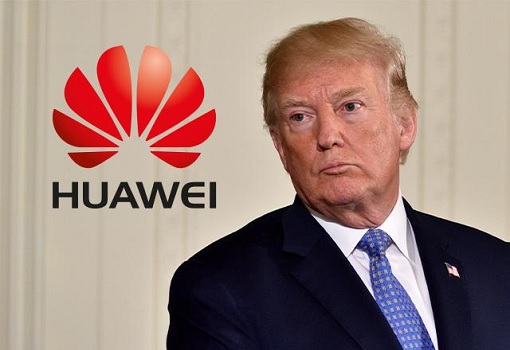
When 46-year-old Meng landed at Vancouver International Airport aboard a Cathay Pacific flight from Hong Kong at 11:35am on December 1, 2018, she was expecting to have a 12-hour layover before proceeding to Mexico. Upon learning of her trip, the U.S. had requested Canada to arrest the Huawei CFO. On November 30, a Canadian judge reportedly agreed to grant the U.S. request.
In the same breath, Meng’s defence team argued that the extradition request from the U.S. does not satisfy a requirement known as “double criminality”. Double criminality, or dual criminality, states that a suspect can be extradited from one country to stand trial for breaking a second country’s laws only if a similar law exists in the extraditing country.
In essence, it means the crime of which Sabrina Meng is accused of by the U.S. must also be a crime in Canada. In this case, the Huawei CFO is accused of violating U.S. sanctions on Iran. However, her attorneys argued that Canada does not have sanctions on financial services in Iran. Hence, she cannot be extradited for the alleged bank and wire fraud or conspiracy to commit the offence.
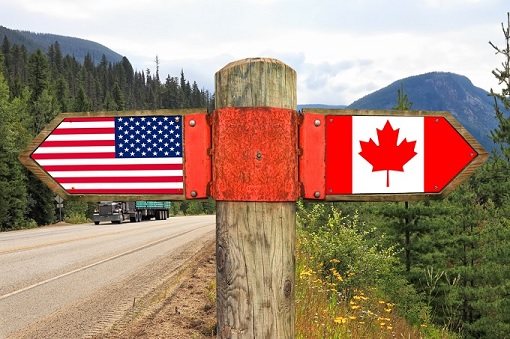
More importantly, her lawyers argued in court that the arrest has been politically motivated from the beginning, despite Canadian Prime Minister Justin Trudeau’s claim that Ms Meng’s arrest had “no political involvement”. Meng’s lawyers said comments by Trump, who said the charges could be dropped if that would help China trade talks, is proof that the case was politically motivated.
The arrest had escalated tensions between the U.S. and China because coincidentally, it happened on the same night the U.S. President Donald Trump and Chinese President Xi Jinping dined together in Buenos Aires and agreed to a 90-day trade truce. At the same time, the arrest provoked a furious reaction from President Xi against Canada.
Just 10 days after Canada arrested Meng, China retaliated by detaining two Canadians, former diplomat Michael Kovrig and businessman Michael Spavor, and charged them with participating in activities that harm China’s national security. More than 18 months after they were detained in secret detention, both Canadians were finally charged with spying in June 2020.
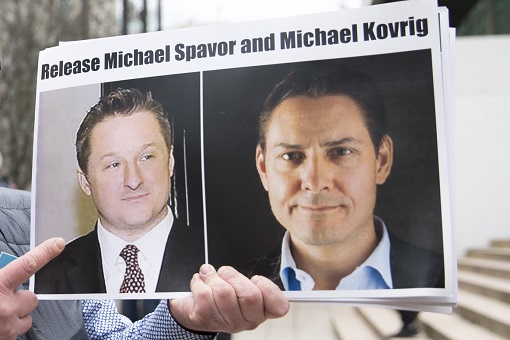
Beijing also sent two Canadians on death row, forcing Canadian Prime Minister Justin Trudeau to accuse Beijing of “arbitrarily” using capital punishment, deepening a diplomatic rift between the two countries. But Beijing was not done punishing Ottawa. In March 2019, Beijing blocked canola seed shipments from Richardson International and Viterra Inc – Canada’s two top exporters.
In June this year, China has temporarily suspended beef imports from Canada. Interestingly, PM Trudeau himself faced pressure from an ex-Supreme Court justice and several former foreign ministers to drop the extradition case against Sabrina Meng in hopes that it will spur China to release the two Canadians.
As early as January 2019, Canada’s ambassador to the U.S.David MacNaughton had blamed the U.S. for the diplomatic fallout, saying – “We don’t like that it is our citizens who are being punished. [The Americans] are the ones seeking to have the full force of American law brought against [Ms. Meng] and yet we are the ones who are paying the price. Our citizens are.”
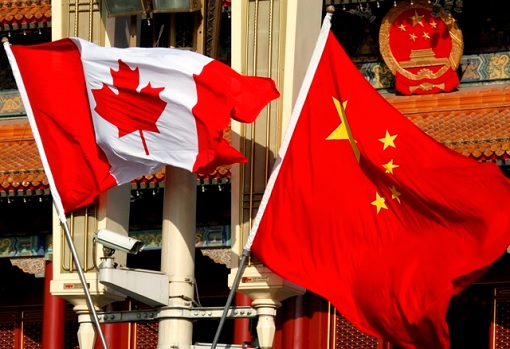
Lawyers of the Huawei CFO and the U.S. Justice Department are expected to continue negotiation in hopes of reaching agreement before the end of Trump administration. From the beginning, the DOJ’s pursuit of Huawei is part of Trump administration effort against the Chinese tech giant, and never about the company’s executive. Unfortunately, Meng Wanzhou happens to be Huawei’s princess.
Other Articles That May Interest You …
- Trump To Cut Off Chip Supplies To Huawei – But The Chinese Tech Giant Has Begun Making Phones With Local Chipmaker
- Huawei CFO Meng Wants Extradition Case Thrown Out – Here’re Her Lawyers’ Three Arguments In Court

|
|
December 8th, 2020 by financetwitter
|


|

|

|

|

|

|




























Comments
Add your comment now.
Leave a Reply